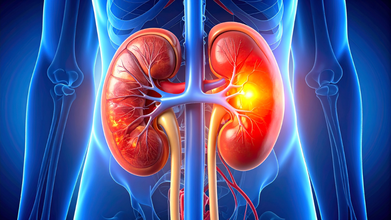- Health Conditions A-Z
- Health & Wellness
- Nutrition
- Fitness
- Health News
- Ayurveda
- Videos
- Medicine A-Z
- Parenting
World Mental Health Day 2024: What Role Does Humour Play In Mental Well-being?

Credits: Canva
Have you ever laughed so loud that it felt like all your problems were gone? Or have you seen elderly people in a park nearby, gathered in the morning, and laughing loudly? There is actually a reason behind it. Humour can help you maintain a stable mental state.
Humour not only boosts mood but also stimulates important functions in our body. It increases oxygen-rich air intake and stimulates organs like our heart, lungs, and muscles. It also releases endorphins and makes us feel pleased and calm. Dr Neerja Agarwal, a psychologist with 15 years of experience and the co-founder of Emoneeds, a mental health platform says that humour is a natural stress relief mechanism that alters heart rate, leaving one in higher spirits. "Laughter also promoted rapid blood circulation, which induces a calming sensation and alleviates tension. As a valuable tool for stress management, humour can also shift perspective, enabling some individuals to perceive challenges in a less daunting manner," she explains.
The 'Feel Good' Chemicals
When a person laughs, it triggers a cascade of physiological and psychological responses that enhance well-being, explains the doctor. The act of laughing also engages multiple brain regions, particularly those associated with emotion, pleasure, and social bonding. This activity stimulates the release of endorphins, which are natural pain relievers and mood enhancers, leading to feelings of joy and relaxation.
"Additionally, laughter increases serotonin levels, contributing to mood stabilisation and reducing feelings of anxiety or depression," she explains. Physiologically, laughing boosts oxygen intake, improves circulation, and activates the diaphragm, which can promote a sense of physical and emotional release.
Dr Gautami Devi Chetri, Clinical Psychologist at Lissun says that laughter can also help in burning calories. "While not equivalent to aerobic exercise, just 10-15 minutes of laughter can burn 10-40 extra calories. It enhances heart function by increasing stroke volume and cardiac output, dilates blood vessels, and lowers cortisol levels, a stress hormone. Additionally, laughter stimulates the brain's reward system, boosts immunoglobulins and natural killer cell activity, and raises beta-endorphins and human growth hormone, contributing to overall well-being," she explains.
How Can One Incorporate It In Life?
Laughter yoga is a great way to do that. Blending laughter with yogic breathing techniques fosters a strong connection between mind and body. Dr Chetri explains that it was founded in India in 1995. Laughter yoga has been shown to lift moods, reduce stress, boost the immune system, and enhance overall quality of life. It also helps people cope with challenges. "As participants laugh while focusing on their breath, they take in more oxygen, activating the body's parasympathetic nervous system, which promotes relaxation and a natural state of calm. It’s a joyful way to improve overall well-being. Studies on laughter yoga have shown that it can significantly reduce mental health symptoms such as anxiety, depression, and hostility, as well as negative self-perception," she says.
Dr Agarwal also says that studies have shown that laughter yoga also enhances cardiovascular health, flexibility and overall vitality which is essential for maintaining independence in later life.
"It encourages social interaction, reduces feelings of isolation, and builds emotional resilience. Participants often experience a sense of belonging and purpose within the supportive community that laughter yoga cultivates. This joyful practice promotes embracing the present moment, alleviating anxiety and encouraging a more optimistic outlook," she says.
Is It Scientifically Backed?
A study by John Goodwin, Maria O'Malley and Karen McCarthy titled How Do Mental Health Professionals Use Humor? A Systematic Review from 2024, published in the Journal of Creativity in Mental Health says that mental health nurses use laughter and humour as a coping mechanism. These nurses stated that whenever there are stressful events in their professional roles, humour is an important strategy to deal with it.
It also found that psychiatrists who tended to employ humour were more likely to report feeling "happy". In fact, in family therapy sessions, school counselling sessions also encouraged family members to joke once in a while each week as it can enhance relationships.
Dr Chetri says that research suggests that laughter has the ability to lower stress-related hormones in the body, which mitigates the impact of stress. It reduces levels of cortisol, epinephrine, growth hormone, and 3,4-dihydrophenylacetic acid, a key dopamine by-product, signaling a reversal of the stress response.
Some of the studies Dr Chetri also points out are:
- A study by Cai, Yu, Rong, and Zhong examined the effectiveness of humour intervention for patients with schizophrenia. They found that 10 hours of humour skill training led to improved rehabilitative outcomes and enhanced the participants' sense of humour, including a reduction in negative symptoms.
- In another integrative literature review by Xuefeng Sun et al. published by the National Library of Medicine, researchers explored that humour therapy was found to significantly reduce symptoms of depression and anxiety in most patients, addressing issues such as low mood, restlessness, sleep disturbances, and negative thought patterns. While motivation levels improved for many, some showed minimal change. The review highlighted three effective interventions: humor therapy, medical clowns for children, and laughter therapy for adults, all of which demonstrated a positive impact on mental health benefits.
- Lastly, in his 1905 book, Jokes and Their Relation to the Unconscious, Sigmund Freud expressed that humour serves as one of the most effective defence mechanisms of the psyche, capable of transforming anxiety into pleasure.
Dr Agarwal also notes that studies have also shown that hospital clowns significantly reduce stress and anxiety levels in both hospitalised children and parents. Another study by Georgia State University found that integrating bouts of simulated laughter into exercise programs improved mental health and aerobic endurance among older adults.
However, humour and its effects work differently on person to person and the results solely depend on the person's anxiety levels and other indicators of mental health. While it can provide a momentary relief, for someone with severe mental health issues, it is always advisable to seek professional help, notes Dr Agarwal.
German Study Shows Squirrels May Be Harboring Mpox Virus

Credit: Canva
Squirrels could be natural hosts of the mpox virus (MPXV) -- that causes monkeypox disease -- according to a recent study by German researchers.
The team from the Helmholtz Institute for One Health (HIOH) identified the fire-footed rope squirrel (Funisciurus pyrropus) as a likely natural reservoir of the MPXV.
The study published in the journal Nature revealed that sooty mangabeys – a primate found in West Africa -- can contract mpox by eating infected squirrels. The disease may present mild lesions, but it can also cause more severe skin lesions or even be fatal.
"Identifying the animal sources of the virus and the exposure routes that lead to inter-species transmission are key steps towards understanding spillover mechanisms and developing effective prevention measures to mitigate the risk of transmission to humans," said Livia V. Patrono, one of the senior authors at HIOH.
Squirrels Suspected MPXV Hosts
While squirrels have long been suspected as potential reservoirs for MPXV, their role was confirmed after an investigation of an mpox outbreak among wild sooty mangabeys (Cercocebus atys) in Côte d'Ivoire.
During the outbreak, reported in early 2023, nearly one-third of the primates showed clinical signs of disease, and four infants died.
The team conducted viral genome sequencing and found that the infected monkeys carried a virus that was nearly identical to an MPXV strain identified in a fire-footed rope squirrel found dead 12 weeks earlier nearby.
Further, the team analyzed fecal samples from the mangabeys. A sample collected eight weeks before the outbreak's onset contained DNA from both the virus and the rope squirrel. This provided strong evidence of interspecies transmission at that moment.
Sooty mangabeys have been previously observed catching and eating fire-footed rope squirrels, which provide a direct route for the transmission of viruses.
Mpox Continues To Spread Globally
Although mpox is no longer a public health emergency, outbreaks of clade I and clade II strains of the mpox virus are continuing in many countries around the world, especially in Africa.
Last week, Madagascar announced the country's first death from mpox, a 3-year-old girl from the island nation’s eastern city of Toamasina.
The WHO has also confirmed that two cases of the recombinant strain – combining genomic elements of clades Ib and IIb of the monkeypox virus (MPXV) – have been identified to date: one in the United Kingdom and one in India.
Mpox is an infectious disease caused by the monkeypox virus (MPXV), part of the Orthopoxvirus genus, which also includes the virus that causes smallpox.
It spreads through close physical contact, including sexual contact, and in some cases through contaminated materials or respiratory droplets.
Symptoms typically include fever, swollen lymph nodes, rash, and/or lesions.
The global health body has also urged all countries to “remain alert to the possibility of MPXV genetic recombination.” It has also urged for continued epidemiological surveillance, sequencing, vaccination of at-risk groups, and infection prevention and control measures.
This AI Tool Predicts Women’s Breast Cancer Risk Up to Four Years

Credit: Canva
An international group of scientists has created an artificial intelligence tool that can estimate a woman’s likelihood of developing breast cancer within the next four years.
The AI tool, known as the BRAIx risk score, analyzes mammogram images to generate an individualized risk assessment and flag women who may face a higher chance of developing the disease.
It may not only show the current risk but also predict the future risk, enabling early detection and treatments for a better outcome.
According to the findings published in The Lancet Digital Health journal, nearly one in 10 women ranked in the top 2 percent of risk by the AI tool were diagnosed with breast cancer within four years. This was despite previously receiving a clear screening result.
“These risk scores enable future development of personalized screening pathways to transform population breast cancer screening and save lives,” said corresponding author Helen M. L. Frazer of the University of Melbourne.
Frazer noted that identifying women who appear cancer-free but carry very high risk -- comparable to those with inherited BRCA1 or BRCA2 mutations -- will unravel both hereditary and non-hereditary causes of breast cancer.
From one-size-fits-all screening to personalization
Breast cancer screening programs have significantly lowered mortality rates -- by roughly 40-50 percent among women aged 50 to 74. However, most screening systems still apply the same approach to all women, regardless of individual risk.
Traditional screening tools use genetics, breast density, and questionnaires to estimate breast cancer risk. On the other hand, new AI-based screening tools, such as BRAIx personalizes screening by gathering information already present in breast scan images to better identify who is at higher risk.
“Our results show that conventional mammographic density is a far weaker predictor of breast cancer risk than the BRAIx risk score, even for interval cancers,” the researchers said in the paper. Interval cancers are aggressive tumors diagnosed after a negative mammogram.
The BRAIx Tool
The BRAIx risk score was developed using mammograms from nearly 400,000 women. To prove its efficacy, the AI tool was tested on data from almost 96,000 women from Australia and then confirmed in an independent Swedish population of over 4,500 women.
The findings showed that:
- The BRAIx risk score estimated breast cancer risk more accurately than the traditional risk factors, such as breast density, country of birth, and even family history.
- For the top 2 percent of women with the highest BRAIx risk score, the probability of a cancer diagnosis within 4 years was 9.7 percent -- a risk level exceeding that typically seen in women with inherited BRCA1 or BRCA2 mutations.
The BRAIx risk score can:
- Make breast screening more personalised,
- Improve early cancer detection,
- Reduce false alarms,
- Save lives without increasing costs
Global Breast Cancer Burden
Breast cancer continues to be the most common cancer among women worldwide.
A recent study published in The Lancet Oncology journal predicted that the number of new cases of the deadly disease will reach more than 3.5 million globally in 2050 -- rising by a third from 2.3 million in 2023.
Annual deaths from the disease will also rise by 44 percent -- from around 764,000 to 1.4 million.
However, not smoking, getting sufficient physical activity, lowering red meat consumption, and having a healthy weight can help prevent over a quarter of healthy years lost to illness and premature death from breast cancer.
COVID Survivors At Nearly Fivefold Risk Of Kidney Failure: Study

Credit: Canva
People who survived a COVID-19 infection can be at significant risk for kidney disease, acute kidney injury, and chronic kidney disease. compared to individuals who were not infected, according to a study.
The study, published online in the journal Communications Medicine, revealed that COVID patients have
- a 2.3-times higher risk of acute kidney injury
- a 1.4-times higher risk of chronic kidney disease
- a 4.7 times higher risk of kidney failure
“While we’re in the post-pandemic era, this shows that COVID-19 history is an important variable when considering the long-term impact of the infection on kidney function and disease,” said first author Yue Zhang, who was at Pennsylvania State University, US, while conducting the study. Zhang is currently a postdoctoral scholar at Johns Hopkins Bloomberg School of Public Health.
How Was The Study Conducted?
For the study, data on over 3 million working-age adults in the United States were analyzed.
The team compared the effect of influenza, another common viral infection that affects kidney health, and people with a history of COVID infection on kidney infections.
Using a machine learning model, the individuals were followed between 180 and 540 days for the emergence of new acute or sudden kidney disease.
The results showed that:
- Both COVID and the flu can worsen kidney health
- Flu caused a mild and temporary effect
- COVID increased the risk of acute kidney injury for a longer duration
- COVID survivors developed kidney disease within a few hours to a few days
- COVID patients had a longer-term chronic and end-stage kidney disease.
How COVID Worsens Kidneys Health
The Penn State researchers explained that kidney cells express high levels of the primary protein receptors that SARS-CoV-2 uses to enter and infect cells. Kidney cells also produce specialized enzymes that help viruses enter cells.
According to Kidney Health Australia, an acute COVID infection can impact the kidneys with fevers and respiratory symptoms, and/or worsening blood sugar control.
The US National Institutes of Health stated that renal dysfunction is an increasing clinical indicator of COVID propagation.
Citing several studies, the NIH said that the most common clinical manifestation is proteinuria -- found in more than half of the COVID patients. In addition, hematuria, elevated blood urea nitrogen, and elevated serum creatinine are other common features in Covid survivors with poor kidney health.
Nasr Ghahramani, Professor of Medicine at Penn State College of Medicine, stressed the need for COVID survivors, especially those with diabetes and high blood pressure, to take "more frequent and more prolonged monitoring of their kidney function" to enable early detection and better outcomes.
© 2024 Bennett, Coleman & Company Limited

